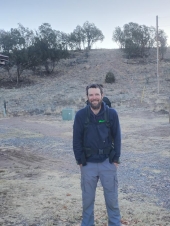




William Schlegel wrote:I have my copy of "Buffalo Bird Woman's Garden" out lately and have been thinking a lot about three sisters gardening lately. Also have thought a lot about how to grow all your own food. Some of the most practical advice I have ever found I found last winter on the latter subject in an article written by Joseph Lofthouse. What and how many seeds to plant. I printed this one out. Also I am pretty sure I have seeds enough in my seed stash now for this scheme- I may be short on one or two. I have quite a lot of squash, corn, beans, peas, and fava seeds on hand right now.
https://www.motherearthnews.com/organic-gardening/survival-seed-banks-part-two-zbcz1312
So I reckon I can do this and it would be fun to try. Next year? Not sure I actually may need to cut back next year. One things for sure I'm doubling the space between the rows in my garden next year. Gotta fit the rototiller between them in case things get ahead of me! Lots of plants did remarkably well with minimal weeding though!
 2
2




Creating sustainable life, beauty & food (with lots of kids and fun)





List of Bryant RedHawk's Epic Soil Series Threads We love visitors, that's why we live in a secluded cabin deep in the woods. "Buzzard's Roost (Asnikiye Heca) Farm." Promoting permaculture to save our planet.
 5
5




Jim Fry wrote:I have thought about writing on these pages about Spirit and Ceremony for many months now. But it almost seems as if such writing is far outside of most thinking or interest. It just seems a direction with which "permaculture" is not concerned (interested).
If I am suffering from a misapprehension, let me know. Maybe we might begin to talk of the "other half" of life, living, and gardens.
With forty shades of green, it's hard to be blue.
Garg 'nuair dhùisgear! Virtutis Gloria Merces
 3
3




A human being should be able to change a diaper, plan an invasion, butcher a hog, conn a ship, design a building, write a sonnet, balance accounts, build a wall, set a bone, comfort the dying, take orders, give orders, cooperate, act alone, solve equations, analyze a new problem, pitch manure, program a computer, cook a tasty meal, fight efficiently, die gallantly. Specialization is for insects.
-Robert A. Heinlein




Dado
 1
1




A human being should be able to change a diaper, plan an invasion, butcher a hog, conn a ship, design a building, write a sonnet, balance accounts, build a wall, set a bone, comfort the dying, take orders, give orders, cooperate, act alone, solve equations, analyze a new problem, pitch manure, program a computer, cook a tasty meal, fight efficiently, die gallantly. Specialization is for insects.
-Robert A. Heinlein
 1
1




 2
2




A human being should be able to change a diaper, plan an invasion, butcher a hog, conn a ship, design a building, write a sonnet, balance accounts, build a wall, set a bone, comfort the dying, take orders, give orders, cooperate, act alone, solve equations, analyze a new problem, pitch manure, program a computer, cook a tasty meal, fight efficiently, die gallantly. Specialization is for insects.
-Robert A. Heinlein

| I agree. Here's the link: http://stoves2.com |





